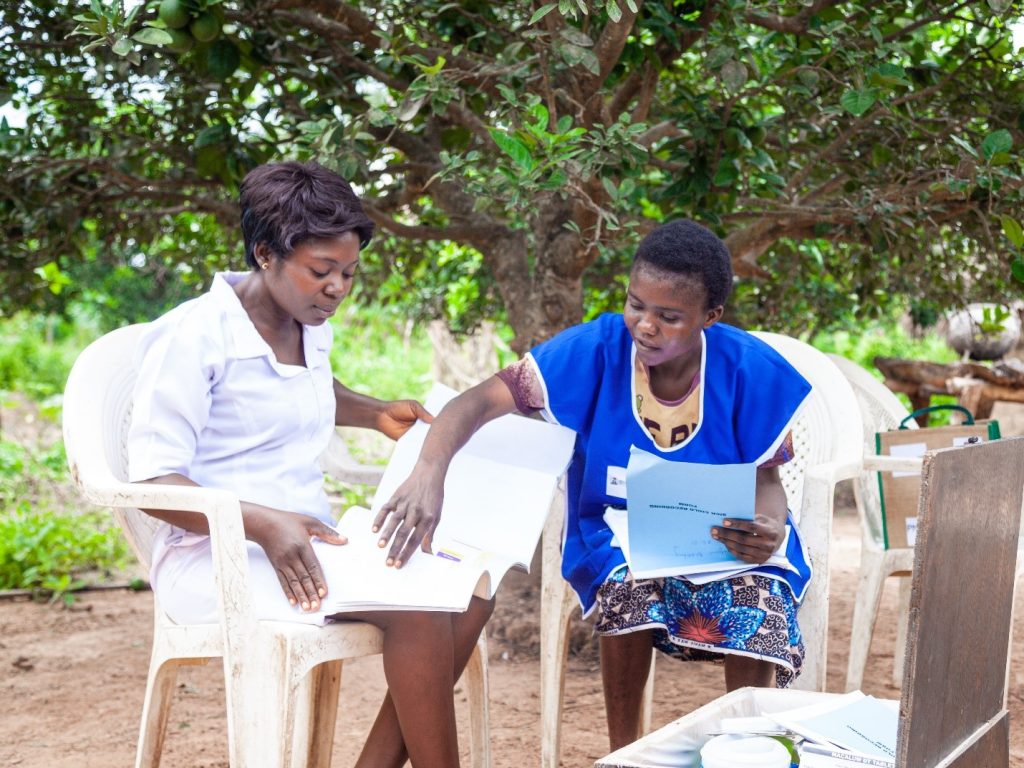Malaria has long burdened families in the small community of Mbayen in Benue State in central Nigeria. The country of Nigeria accounts for more than a quarter of the world’s malaria cases. The impact of malaria weighs particularly heavily on the shoulders of women. They often bear the responsibility of caring for sick children, husbands, parents, siblings, and grandparents, taking time off school or work to nurse loved ones back to health when malaria strikes.
Mbayen community member Blessing Ichekula recognized that women’s traditional roles—hewing wood and cooking outdoors—placed them at greater risk of being infected with malaria. As she explained, “Women in our community are also responsible for farming and fetching water. These tasks often require them to be outside during the times when malaria-carrying mosquitoes are most active.”
To address these gender-specific challenges, the U.S. President’s Malaria Initiative, in collaboration with the Benue State Primary Health Care Development Agency, initiated a program called the Community Oriented Resource Persons (CORPS). The CORPS is made up entirely of women who work closely with health workers at nearby primary health centers to make sure people in their communities, especially women and children, have the care they need to stay safe from malaria.
As one of 700 CORPS workers, Blessing uses the training she received through the program to counsel community members on malaria prevention, conduct malaria tests, provide basic treatment during home visits, and refer more severe malaria cases to a health facility. Blessing provided services to more than 380 children between September 2022 and September 2023.

Health worker Caroline Nyior (left) comparing the patient register at the health facility where she works with Blessing Ichekula’s referral records. Photo credit: Management Sciences for Health
As the sole CORPS representative in Mbayen, Blessing plays a crucial role in reaching children and women to make sure they have access to malaria testing and treatment. She also provides essential information to the women in her community about the services available at the nearest health facility, Primary Health Care Center (PHC) Agidi, such as free preventive medicine to help protect pregnant women from malaria.
Caroline Nyior, a health worker at PHC Agidi, appreciates Blessing’s unwavering commitment to the health of her neighbors. “Blessing takes the right steps to manage patients’ health issues before referring the cases who need urgent health care to us. She supports patients in reaching the PHC despite the challenging terrain,” Caroline remarked, referring to Blessing’s efforts to ensure women have access to motorbikes to reach the health facilities.
Blessing’s story is a testament to the strength and resilience of women on the frontlines of the fight against malaria. She is determined that women and children in Mbayen have access to the malaria and health services they desperately need. “My joy knows no bounds when I cater to the basic health needs of women and children in my community,” she says. “I am like a walking hospital. I will not stop till Mbayen community is free from malaria.”
Cover photo: Blessing Ichekula, a community health worker, testing a young child for malaria. Photo credit: Management Sciences for Health
The five-year U.S. President’s Malaria Initiative for States (PMI-S) project is being implemented in eight states in Nigeria with the goal of improving malaria case management and expanding access to services that prevent malaria in pregnant women and young children. Led by Management Sciences for Health (MSH), the program aims to increase local capacity in malaria prevention and case management, strengthen health systems for service delivery, and improve malaria surveillance and data quality to inform effective malaria services.
